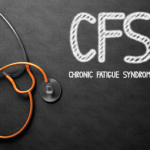(Reuters Health)—People with severe symptoms of chronic fatigue syndrome have a molecular signature in blood made up of 17 immune system signaling molecules that are elevated, which may provide insight into how inflammation contributes to the condition.
“Of the 17 cytokines that correlated with severity, 13 are proinflammatory, likely contributing to many of the symptoms experienced by patients and establishing a strong immune system component of the disease,” write Dr. Jose G. Montoya of Stanford University School of Medicine in California and colleagues in the Proceedings of the National Academy of Sciences, online July 31.1
Millions of people worldwide, including more than 1 million in the U.S. alone, suffer from chronic fatigue syndrome, they note.
The condition, also called myalgic encephalomyelitis, may be diagnosed when people have at least six months of debilitating fatigue that can’t be explained by other causes and make it difficult for them to keep up with school, work or social activities. Symptoms can appear in different combinations and intensities and may include sleep problems, cognitive impairment, fever, sore throat, or sensitivity to noise, light or certain foods.
Many, but not all, chronic fatigue syndrome patients experience flu-like symptoms common in diseases caused by inflammation, they add.
For the current study, the researchers examined blood samples from 192 patients with chronic fatigue syndrome and a control group of 392 healthy people.
The scientists found that some cytokine levels were lower in patients with mild forms of chronic fatigue syndrome than in the group of healthy individuals, but higher in people with severe symptoms of chronic fatigue syndrome.
One cytokine in particular, tumor growth factor beta (TGF-beta), was higher in patients with chronic fatigue syndrome than in the healthy controls, while another protein, resistin, was lower.
However, the study team also found that the concentrations of 17 of the 51 cytokines they examined were associated with disease severity. Thirteen of those 17 cytokines are pro-inflammatory, the authors note.
Taken together, the findings build on previous research demonstrating that chronic fatigue syndrome is a real illness, and not something patients make up or experience only for psychological reasons, experts say.
“Many people with (chronic fatigue syndrome) report that their illness began with symptoms associated with a typical respiratory infection including fever, sore throat, swollen lymph nodes, muscle weakness and fatigue, but the clinical course was atypical and they never fully recovered,” says Dr. Ian Lipkin, a researcher at the Mailman School of Public Health at Columbia University in New York.


